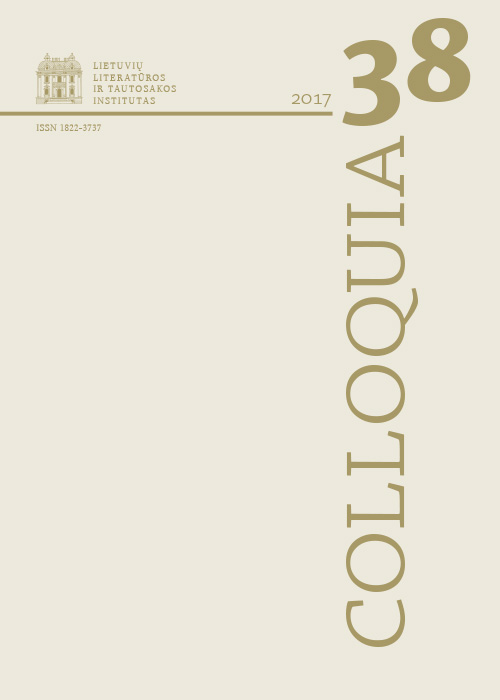Senosios baltų tikybos „krikštijimas“ Kazio Bradūno lyrikoje
Santrauka
Baltų kultūros istorijoje esama gilių įtampų tarp senosios tikybos ir krikščionybės. Šias įtampas interpretuoja lietuvių literatūra, atskleisdama jų dramatizmą, tragizmą ir / ar „krikštydama“ senąją baltų tikybą, atrasdama joje artimumo krikščionybei. Bene ryškiausia poetinė tokio „krikštijimo“ versija egzistuoja Kazio Bradūno (1917–2009) lyrikoje. Bradūnas išryškina nekrikščioniškas apaštalavimo baltų kultūroje apraiškas – neva krikštijimą grobiant ir žudant, ir atskleidžia giliąsias pasaulėvokines sąsajas tarp senosios baltų tikybos ir krikščionybės. Bradūnui, krikščioniui poetui, krikščionybė yra apreikštoji religija, ji duota, o senoji tikyba – žmogaus esmės ir Dievo paieška intuityviosiomis žmogiškosiomis galiomis – tautos savitumo, tautos būdo raiška. Suvokti tautos kultūros, kaip mentaliteto formos, savitumą yra ryški Bradūno kūrybos intencija. Komentuodamas lietuvių ir baltų kultūros savitumą, Bradūnas išskiria trejetą aspektų: kūrybingumą, žemdirbiškumą ir valstybingumą. Religingumas (nei senosios tikybos, nei krikščionybės prasme) Bradūno komentaruose kaip atskiras aspektas neįvardijamas, tačiau tyrinėjant jo kūrybą matyti, kad ir žemdirbiškumo, ir kūrybingumo, ir valstybingumo poetinė refleksija glaudžiai siejama su tautos religinio savitumo tema. Straipsnyje tyrinėjamas Bradūno poetinės pasaulėvokos dėmesingumas senajai baltų tikybai ir jos dialogui su krikščionybe, poetinė krikščionybės inkultūracija. Pagrindinė teorinė šio tyrimo perspektyva – literatūros teologija, nagrinėjanti literatūrinio mąstymo apie transcendenciją aspektus, derinanti estetinius ir teologinius vertinimo kriterijus.
Atsisiuntimai
Skaitomiausi šio autoriaus(ų) straipsniai
- Dalia Čiočytė, Demoniškumo samprata Herkaus Kunčiaus apysakoje Ištikimiausias metafizinis draugas ir Mariaus Ivaškevičiaus dramoje Mistras , Colloquia: T 39 (2017)
